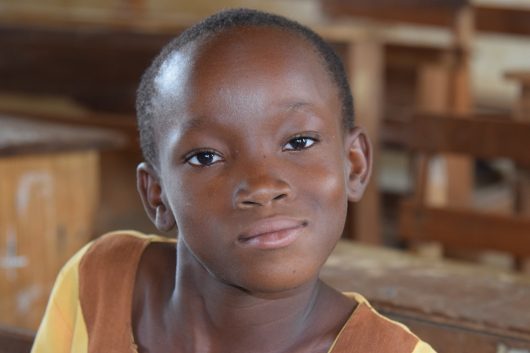Education Access for Children With Disabilities in Ghana
 Around the world, children with disabilities are faced with many challenges that can hinder their success and well-being. In Ghana, children with mild to moderate disabilities are often denied access to education simply because of basic impairments. This creates a sense of isolation and lack of motivation among these children, and diminishes their quality of life. Fortunately, in recent years several programs led by a variety of humanitarian organizations (such as UNICEF) have begun improving education access for children with disabilities in Ghana.
Around the world, children with disabilities are faced with many challenges that can hinder their success and well-being. In Ghana, children with mild to moderate disabilities are often denied access to education simply because of basic impairments. This creates a sense of isolation and lack of motivation among these children, and diminishes their quality of life. Fortunately, in recent years several programs led by a variety of humanitarian organizations (such as UNICEF) have begun improving education access for children with disabilities in Ghana.
With one in three children who are not in school being withheld simply because of a disability, this problem is affecting Ghana’s children significantly. Children with disabilities such as cerebral palsy are often hidden in their communities, unable to or not allowed to go to school. Parents of children with these mild to moderate disabilities often recognize their child’s intelligence, but lack local schools with the support required to care for their needs.
This is changing, however, with the help of initiatives from UNICEF and the Campaign for Learning Disabilities (CLED).
UNICEF, in partnership with USAID, has led this mission by creating and supporting inclusive schools where children with disabilities are welcomed and can get assistance. The goal of creating inclusive schools was pursued by a community outreach program where parents were encouraged to hear about how all children, regardless of ability, were entitled to an education.
From UNICEF’s initiative, more than 450 teachers have been trained in inclusive education, and children with mild to moderate disabilities have access to over 83 basic schools that provide an inclusive learning environment.
CLED has also improved education access for children with disabilities in Ghana. CLED is a non-profit organization that helps communities by equipping teachers and parents with the tools needed to best support children with disabilities, as well as by providing specialized tutoring for children with disabilities. CLED has also acted as an advocate for this issue in Ghana by leading monthly radio talk shows on inclusive education. So far, CLED has donated 2850 school supplies, provides tutoring programs in 30 schools, and has trained 2292 teachers.
While many children with disabilities still lack access to proper education, the solution to this problem will require better understanding and support from communities. However, through these initiatives led by UNICEF and CLED, more and more disabled children are able to learn and express themselves in inclusive schools.
– Kelly Hayes
